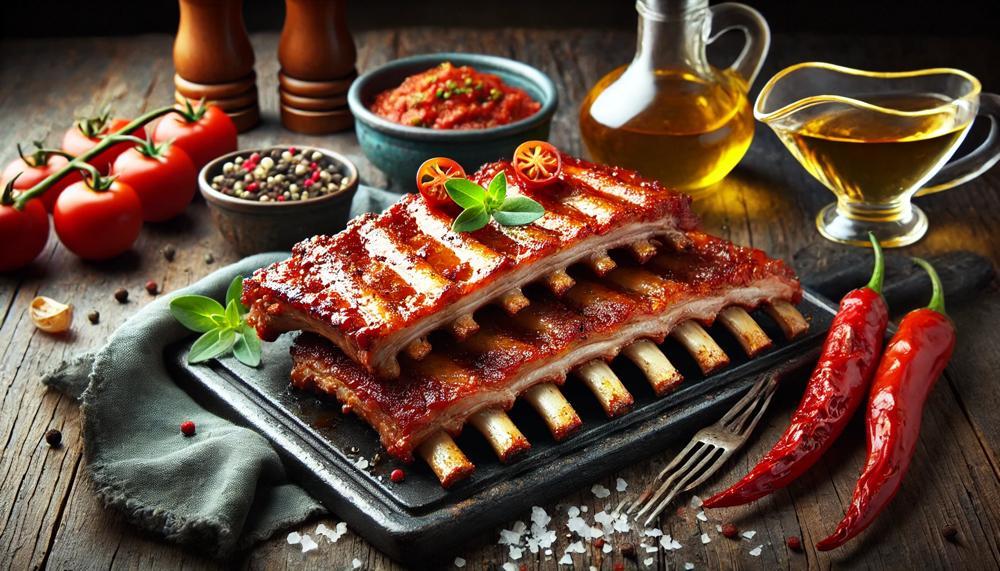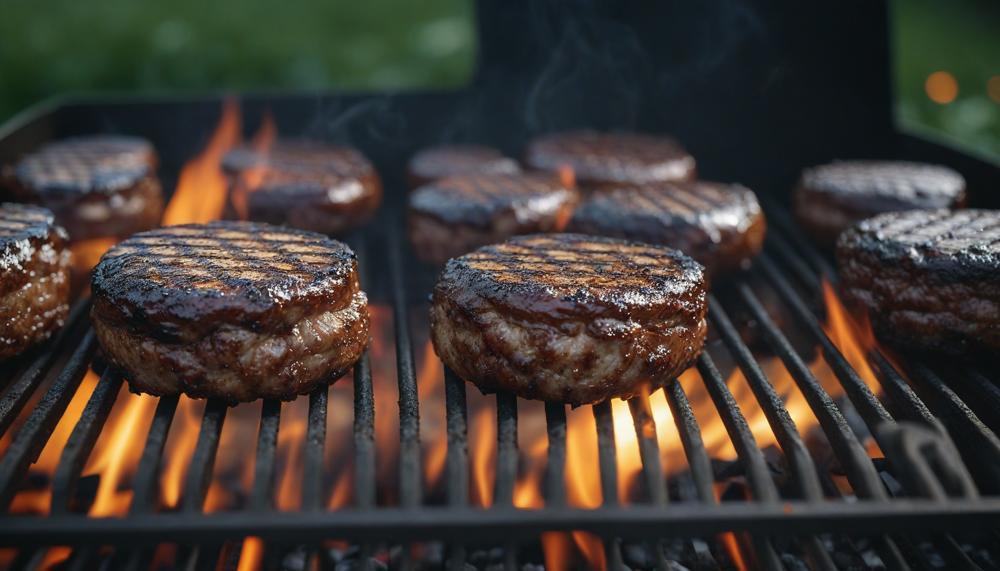No, it’s not common for pork ribs to smell like rotten eggs, but there are exceptions to this rule, and understanding them is crucial for every home chef and barbecue enthusiast. If you’ve ever opened a package of pork ribs and been greeted by a faint sulfur or rotten egg odor, don’t panic just yet. This phenomenon is often related to the way the ribs are packaged and stored rather than their freshness.
When pork ribs are vacuum-sealed, the lack of oxygen can cause natural gases like hydrogen sulfide, produced during the breakdown of meat proteins, to build up. This results in that unpleasant smell upon opening.
Typically, this scent should fade after the meat has been exposed to the air for about 10 to 15 minutes. If the odor lingers longer than 30 minutes, however, this could be a sign of spoilage, and the ribs should be considered unsafe to eat.
This issue is important to address not only for the sake of a good meal but also for health safety reasons. By understanding the causes and implications of such odors, you can make better decisions about the quality and safety of the meats you consume. Here’s a quick rundown of the key takeaways:
- Temporary Odor: A sulfur-like smell right after unpacking is normal due to hydrogen sulfide gas from lack of oxygen.
- Air Exposure: Allow the ribs to sit out for 10-15 minutes; the smell should dissipate as they come into contact with air.
- Spoilage Indicator: If the smell persists beyond 30 minutes, it’s likely a sign of spoilage.
- Health Risk: Consuming spoiled meat can pose serious health risks, so it’s best to err on the side of caution and discard suspicious-smelling ribs.
So, whether you’re planning a summer barbecue or a cozy winter meal indoors, paying attention to these details can ensure a safer and more enjoyable cooking experience.
Contents
Is It Normal For Raw Pork Ribs To Smell?
Yes, it is normal for raw pork ribs to have a slight smell immediately after being removed from their vacuum-sealed packaging.
This odor is generally due to the confinement of the ribs in an oxygen-deprived environment, which can lead to a buildup of lactic acid and a noticeable smell, often described as sulfuric or eggy.
| Smell Characteristic | Reason | Action |
| Slight sulfuric/eggy smell | Result of vacuum packaging | Allow ribs to air out for 10-15 minutes |
| Persistent or worsening odor | Possible spoilage | Discard ribs to avoid health risks |
| No smell or mild meaty smell | Fresh and properly stored ribs | Suitable for cooking |
When assessing pork ribs, a light, transient odor is typical and should dissipate after the meat has been exposed to fresh air for a few minutes. However, if the smell does not fade or becomes more intense, this could signal that the meat is no longer good to eat. It’s crucial for any griller or cook to trust their senses—sight, smell, and touch—to judge the quality of the meat.
Why Do My Pork Ribs Smell Bad?
If your pork ribs emit a bad smell upon opening, it’s likely due to the vacuum-sealed packaging which restricts oxygen flow. This can cause a tangy, sulfur-like odor to develop as the meat’s juices interact with the lack of air. This smell, although unpleasant, doesn’t necessarily mean the ribs are spoiled.
Here’s a breakdown of how to check and manage this issue:
- Air Out the Ribs: Immediately after unpackaging, let the ribs sit out in fresh air for about 15 minutes. This can help dissipate any initial odors.
- Assess the Smell: If the odor diminishes after airing out, the ribs are likely still good to use. However, if the smell persists or intensifies, it might be a sign of spoilage.
- Use Vinegar: Dabbing the ribs with vinegar can help neutralize odors. Simply apply a small amount of vinegar to a cloth and wipe the surface of the meat before rinsing it off.
- Brining: Both dry and wet brining are effective in drawing out unpleasant smells and adding flavor to the meat.
How To Fix Bad Smelling Pork Ribs
To effectively tackle the bad smell in pork ribs that resemble the scent of rotten eggs, follow these direct steps:
Unwrap and Dry
Immediately remove the ribs from their packaging to expose them to air. Pat them thoroughly with paper towels to remove excess moisture which can harbor odors.
Vinegar Rinse
Lightly rub the ribs with white vinegar to help neutralize the foul smell.
Let the vinegar sit for about 5 minutes, then rinse the ribs under cold water to wash away the vinegar along with any lingering odors.
Air Out
Allow the ribs to air dry for an additional 5-10 minutes.
Exposure to air can greatly help in dissipating any remaining odor that was trapped during packaging.
Brining
Prepare a simple brine solution (water mixed with a generous amount of salt) and submerge the ribs for at least an hour.

This can help draw out any odorous juices and further neutralize smells.
Cooking Test
If the odor has lessened or disappeared, proceed to cook the ribs. Often, the cooking process itself can eliminate any residual odors.
Conclusion
Experiencing pork ribs that smell like rotten eggs can be alarming, but understanding the cause can ease your concerns and ensure a safe, delicious meal.
This unusual odor often stems from the vacuum-sealing process, where the lack of oxygen allows gases like hydrogen sulfide to accumulate, creating a sulfuric smell. This odor should dissipate within 10 to 15 minutes of exposure to air.
However, if the smell lingers beyond 30 minutes, it could indicate spoilage. To handle this situation effectively:
- Air Exposure: Upon opening the package, let the ribs breathe for 10-15 minutes. This usually helps dissipate any sulfur-like odors.
- Check for Spoilage: If the smell persists after airing out, the ribs may be spoiled. It’s safest to discard them in such cases to avoid health risks.
- Neutralizing Techniques: Wiping the ribs with a vinegar-soaked cloth or brining them can help neutralize residual odors. After rinsing off the vinegar, allow the ribs to air dry further.
- Final Check: If the odor significantly reduces or disappears, the ribs should be safe to cook. Cooking will often eliminate any remaining smells.
Remember, your senses are the best tools for judging meat quality. Always prioritize health and safety by erring on the side of caution with persistent odors.






